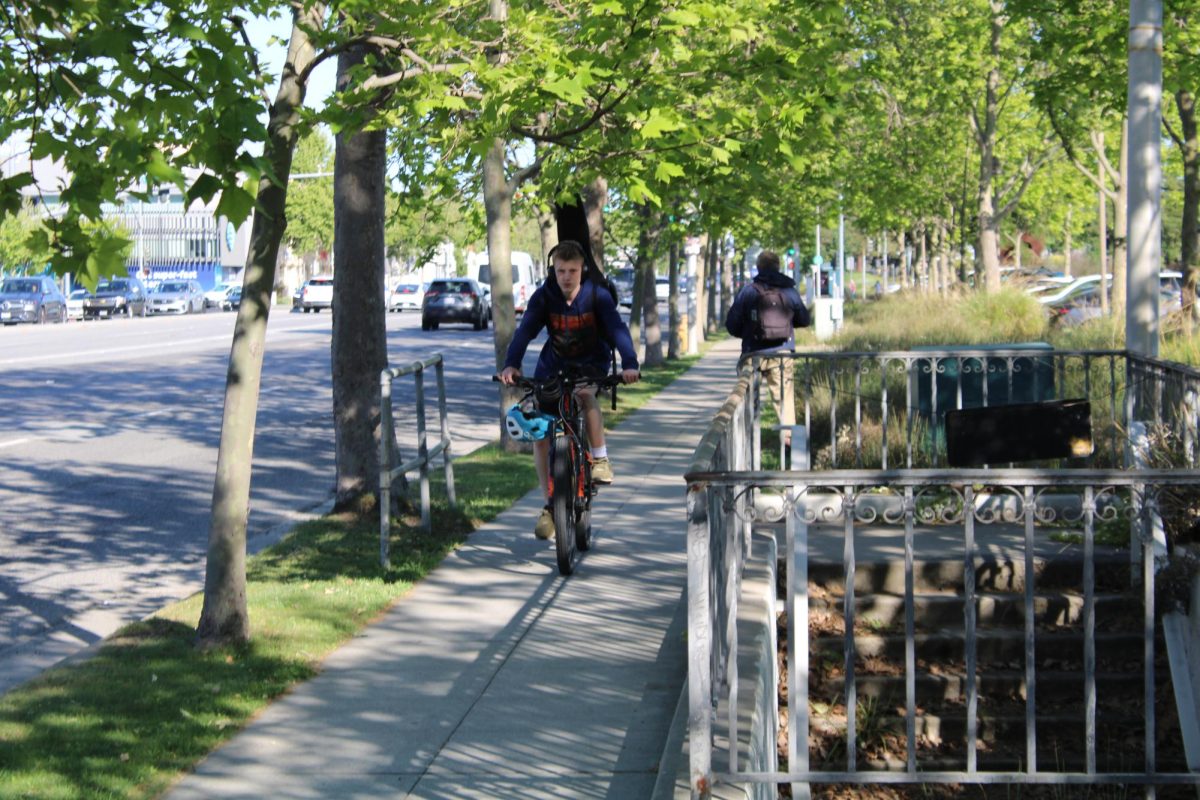While the nation determines the fate of the country through the presidential election on Nov. 8, Palo Altans also face a different decision concerning the future of the city—choosing four of the 11 candidates for the Palo Alto City Council.
The primary issue this election is the growth and development of Palo Alto. The battle lies between the residentialists, who prefer slower city growth in order to retain Palo Alto’s suburban atmosphere, and supporters of fast growth, who advocate for the opposite and would like to see the city evolve into a cosmopolitan hub.
While no candidate for the Council is an ardent advocate for fast growth, some candidates support a more moderate viewpoint. Those who do so generally believe that housing should be the City’s top priority and should be expanded faster than residentialists want housing expansion.
[divider]Adrian Fine[/divider]
 Palo Alto native Adrian Fine, who is the chair of the Planning and Transportation Committee, represents a moderate vision for Palo Alto’s future.
Palo Alto native Adrian Fine, who is the chair of the Planning and Transportation Committee, represents a moderate vision for Palo Alto’s future.
While many candidates are praising the City’s office space cap or calling for decreasing the limit, Fine, who was initially skeptical about the office space cap, has called the cap too “blunt” and instead he hopes to approve developments based on their impacts to the city, such as traffic and parking.
Regarding issues with housing in Palo Alto, Fine emphasizes the necessity to act to bring down housing prices and increase availability. He has pointed out that, of his graduating class of 400 at Gunn, only four or five still remain in Palo Alto due to rising prices and low availability of housing. Fine has said that the City needs to focus on providing a broader range of housing for the diverse housing needs of Palo Altans including smaller units, rental units, co-housing and bungalows, especially for seniors.
“I believe going forward, we need to look at what kind of demand is there for housing. If you look at the demographics, the main groups that aren’t being served are seniors, who may want to downsize to a smaller condo or apartment.”
Adrian Fine
Fine has said that his traffic plan, which includes partnering with Uber and Lyft and providing better information about parking, is about “finding 21st-century solutions to traffic problems.”
[divider]Arthur Keller[/divider]
 Arthur Keller, data scientist and former member of the Planning and Transportation Committee, primarily favors slow-growth policies.
Arthur Keller, data scientist and former member of the Planning and Transportation Committee, primarily favors slow-growth policies.
In line with his slow-growth position, Keller views the office space cap favorably. He has also stated that developers should have to mitigate the negative consequences created by development, such as increased traffic due to their employee’s commute and decreased parking for the same reason. Furthermore, he has said that the City should mandate developers not to create extra traffic or parking issues.
“When we do individual developments, there is something called the transportation demand management program that we can impose,” Keller said. “That program has standards that talk about reducing the demand for transportation, and I think the metrics that [the City uses to judge developments transportation impacts] should be outcome-based rather than effort-based, and they should be enforced.” Keller said.
He takes a moderate stance on housing issues. He argues that Palo Alto does need more housing, especially smaller units, such as one-room studio apartments and affordable housing for seniors and public servants. However, he qualifies this by adding that the City needs to take into account Palo Alto Unified School District’s student enrollment and not allow it to get too high.
“Even though our comprehensive plan actually says we [refer to school enrollment when deciding zoning policies,] we, in fact, have not done that. I think we need to go back and do what the comprehensive plan says and actually look at the relationship between schools and housing and optimize that so that we keep school enrollment at a reasonable rate.”
Arthur Keller
[divider]Danielle Martell[/divider]
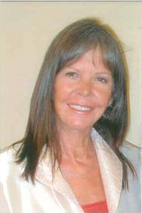 Computer scientist and mathematician Danielle Martell runs on a residentialist platform, but the most controversial part of her campaign isn’t her view on City issues, but her numerous acquisitions of violations of her constitutional rights.
Computer scientist and mathematician Danielle Martell runs on a residentialist platform, but the most controversial part of her campaign isn’t her view on City issues, but her numerous acquisitions of violations of her constitutional rights.
Martell has accused the League of Woman Voters of violating her first amendment rights. Martell claims that the League made “aggressive and repeated attempts to censor ” her and City Attorney Molly Stump of violating her constitutional right to a “fair hearing” in a hearing pertaining to an incident in July 2014 which resulted in Martell being kicked out of a local library.
But claims that her constitutional rights are being violated are not Martell’s only concern. On affordable housing, Martell believes that the City should move Caltrain underground then create two-story houses on top of it for public servants, such as firefighters and police officers. She believes that the City should sell advertising space for the tunnels to businesses, such as Google and Facebook, to pay for this.
“We could encourage high-tech companies to support the under-grounding of our rail system in exchange for naming a station after each company that participates,” Martell’s campaign flyers state. “Because we have only two stations, each station may end up with hyphenated names.”
Affordable housing isn’t Martell’s only priority, she also wants to stop what she sees as a serious problem: illegal immigrants taking local Palo Altan’s jobs.
“Palo Alto City government has become so ‘business friendly’ that it trivializes the need for low-level and entry-level employment opportunities, for our own youth and other eligible workers, by turning a blind eye to local restaurants offering these jobs to underpaid illegals.”
Statement from Danielle Martell’s campaign flyer
[divider]Don McDougall[/divider]
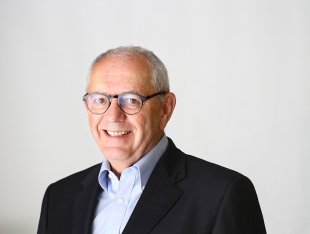 Retired high-tech CEO and environmental volunteer Don McDougall focuses on three forms of sustainability in his campaign: environment, economy and equity.
Retired high-tech CEO and environmental volunteer Don McDougall focuses on three forms of sustainability in his campaign: environment, economy and equity.
To McDougall, environmental sustainability does not mean the expansion of Palo Alto parks. Instead, he hopes to maintain the parks that the City already has, and improve them over time.
Economy-wise, McDougall wants to maintain retail by making stores more accessible through a more walkable and bike-able streets.
Regarding equity; McDougall hopes to maintain this through the encouragement and acceptance of all people in Palo Alto.
““The diversity of social classes, of religion, of ages, of capabilities, is an important part of what is Palo Alto,” McDougall said.
McDougall credits his participation in the Library Commission and Comprehensive Plan Commission, as well as inspiration from author Richard Florida, who wrote the book “Who’s Your City.”
“[Who’s Your City] made me interested in the state of the city, the state of cities in general,” McDougall said. “The more I saw a lack of action on the City Council, the more I felt that strong leadership and partnership and experience in collaboration could make a difference.”
McDougall believes that many of Palo Alto’s problems can be ameliorated by working with local businesses and communities.
“We can’t solve the housing prices, the transportation prices, without cooperating with our neighbors and that’s a different kind of partnership that needs to be created. The same kind of thing can be done with local business, they’re not the enemy, they’re a potential partner, and we need to learn how to partner with them.”
Don McDougall
[divider]Greer Stone[/divider]
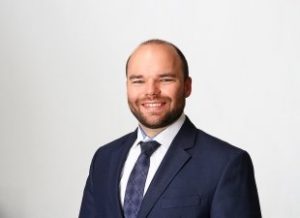 Greer Stone, Chair of the Human Relations Commission of four years, hopes to bring his native Palo Altan community values and knowledge into the city council.
Greer Stone, Chair of the Human Relations Commission of four years, hopes to bring his native Palo Altan community values and knowledge into the city council.
Stone, who was encouraged to run for city council due to his recent engagement and decision to settle in Palo Alto, realized his concern about the state of the city during a discussion with his fiance about their future.
“It was during that conversation when I questioned if Palo Alto is the best city to raise our kids in over the next 10, 20, 30 years,” Stone said. “It was that kind of concern that really [troubled] me and I’ve been active in the city government for a while now.”
One of those concerns is related to the growth of Palo Alto. While Stone is a proponent of a slow-growth plan, he still encourages some level of development, as long as it is regulated. Due to the lopsided job to housing ratio, he proposes to first limit office growth, then focus on gradually adding housing so that strain put onto the aging infrastructure is minimal.
“I don’t think Palo Alto can handle the vast expansion of growth that some candidates are proposing. We have an infrastructure that is geographically contained; there is [Highway 101] on one side, protective foothills on the other, as well as really narrow streets. Now I do not stand at all for no growth, I just think we need to have smart growth.”
Greer Stone
Mental health is another issue that Stone would like to address. He believes that funding non-profit organizations is the best way to help those battling depression.
“Currently that funding is still at 2002-2003 levels and those are pre-recession [standards],” Stone said. “And so I think we need to make sure that nonprofits are getting adequate funding that they need to be able to address needs like mental health and teen mental health. We also need to make sure that they get the office space needed to function.”
[divider]Greg Tanaka[/divider]
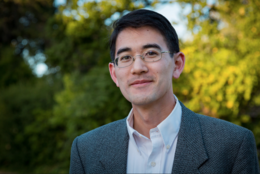 Greg Tanaka, a member of the Planning and Transportation Committee, is running because he feels that families in Palo Alto are being underrepresented on the City Council.
Greg Tanaka, a member of the Planning and Transportation Committee, is running because he feels that families in Palo Alto are being underrepresented on the City Council.
Tanaka, who moved to Palo Alto for the strength of the schools, said that younger adults with families with similar experiences to his don’t have the time to run, causing issues pertaining to this younger demographic to be ignored.
“Because they are working so many hours to live here, they don’t really have time to participate in City stuff,” Tanaka said. “And so the voice of families in Palo Alto is actually quite small, so a lot of things that families care about aren’t really very well addressed by the current representation of City Council.”
In line with his family focused position, Tanaka has said that his top priority is making sure that the City puts kids first.
“These are the kinds of things that families care about. How do I take care of our kids? How do kids get to school safely how do we make sure there is funding for afterschool programs? How do we makes sure the schools are strong? One of the biggest reasons why I am running is that I believe families need a bigger voice in Palo Alto.”
Greg Tanaka
Tanaka has a moderate platform regarding a majority of the City’s divisive policy issues.
He was on the Planning Commission that called the office space cap a “blunt tool,” but more recently he has said that the cap should remain at least until the City’s comprehensive plan is updated.
On housing, Tanaka has said that a measured approach, which takes into account a lot of community feedback is necessary, specifically he has supported dividing large housing units into smaller ones and trenching Caltrain to create more space.
Tanaka’s traffic plan focuses on making developers mitigate the impacts of their developments and partnering with neighboring cities to reduce traffic.
[divider]John Fredrich[/divider]
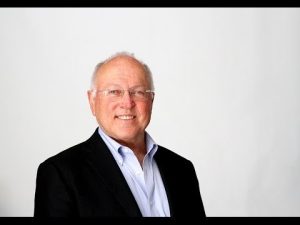 Fredrich, a retired Gunn High School teacher and self-proclaimed socialist, is running in his sixth election. Fredrich tends to fall on the slow-growth side of City issues and his top priorities are retaining Palo Alto’s quality of life and building more affordable public housing.
Fredrich, a retired Gunn High School teacher and self-proclaimed socialist, is running in his sixth election. Fredrich tends to fall on the slow-growth side of City issues and his top priorities are retaining Palo Alto’s quality of life and building more affordable public housing.
Fredrich believes that changes need to be made in the education program that both high schools follow.
“You need to have high school programs that are for applied academics, technology, but you also have community stuff there, like child care,” Fredrich said.
Fredrich also believes that the city needs a better transportation system due to traffic issues. He blames the current congestion on traffic plans that divert flow into the side streets of Palo Alto.
“All these cross streets, we’ve seemed to be able to move some traffic on [Highway 101] and [Highway 280] and on El Camino and Alma. But everywhere where they cross, because of the level of development, we have serious problems and ultimately we need better rapid transit.”
John Fredrich
[divider]Len Ely[/divider]
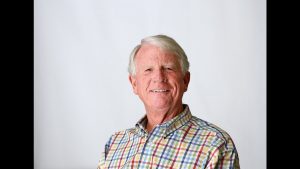 Third-generation Palo Altan Len Ely aims to use his experience as a board member in various Silicon Valley non-profits to bring a “fresh set of ideas and a fresh face” to the City Council.
Third-generation Palo Altan Len Ely aims to use his experience as a board member in various Silicon Valley non-profits to bring a “fresh set of ideas and a fresh face” to the City Council.
Although Ely does not have a background in politics, his years of volunteering in Palo Alto, as well as his background as a project manager and a commercial real estate broker, have helped him gain experience in management and problem-solving.
To solve the housing and traffic problems in Palo Alto, Ely supports raising the building height limit downtown and on California Avenue to provide for more housing.
“[Raising the height limit] will somewhat help to take care of some of the traffic, because people will be living here, and not commuting in,” Ely said.
Ely is neither a residentialist nor a supporter of fast growth, and calls himself a “Palo Altoist” who will base his actions around a future-focused goal.
“I believe that growth is inevitable, [and] I don’t think that the government should just decide that growth is not going to happen because that’s not practical, and I don’t think it’s doable. What we need to do is figure out where we want to be in 10 to 15 years, and if that’s 5 percent growth of offices and 15 percent growth of housing, then [we need to] put into place policies and ordinances that will take us there.”
Len Ely
Ely prides himself on being driven only by what he believes is best for Palo Alto, not by his individual beliefs.
“I’m going bring some fresh thinking to the City Council,” Ely said. “I don’t know that I’m the best candidate, [but] I’m a different type of candidate than any of the others. I don’t have any political aspirations, I don’t have any agendas, I’m not tied to anyone. I’m just a citizen that’s just trying to help this city.”
[divider]Liz Kniss[/divider]
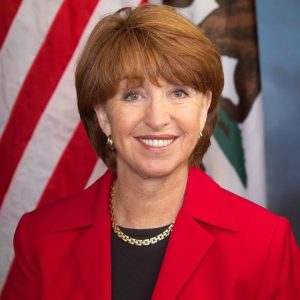 Liz Kniss, the only incumbent in the City Council race, serves on the Santa Clara Valley Transportation Authority (VTA) Policy Committee and the Bay Area Air Quality Management District. She views her experience in regional cooperation as vital for the City.
Liz Kniss, the only incumbent in the City Council race, serves on the Santa Clara Valley Transportation Authority (VTA) Policy Committee and the Bay Area Air Quality Management District. She views her experience in regional cooperation as vital for the City.
Kniss points to recent successes that she helped to create, such as her role in acquiring grant funding for the bike bridge over U.S. Highway 101 and making sure that the VTA transportation tax (Measure B) includes wording that promises improvements for north-county.
On policy, Kniss does not have a strong ideological tilt. She has voted for creating mixed-use developments, yet she also supports expanding the City’s office space cap. Her top priorities are housing and transportation.
Kniss has said that she supports creating diverse affordable housing for all generations living in Palo Alto. To achieve these goals, Kniss believes that the City should zone for more housing in downtown and California Avenue, where there is access to transportation and retail and use government subsidies in addition to the below-market-rate building requirement for developers to create more affordable housing.
On transportation, Kniss supports electrifying CalTrain and cites her pivotal role in creating the city’s Transportation Management Association, which is a non-profit organization intended to develop, manage and market transportation programs.
[divider]Lydia Kou[/divider]
 Outspoken residentialist Lydia Kou is running for the second time since the 2014 election, when she lost by slim margin of 135 votes. She has remained an active member of the community as a leader of the City’s emergency preparedness programs, as well as an advocate for cultural diversity in her Barron Park neighborhood.
Outspoken residentialist Lydia Kou is running for the second time since the 2014 election, when she lost by slim margin of 135 votes. She has remained an active member of the community as a leader of the City’s emergency preparedness programs, as well as an advocate for cultural diversity in her Barron Park neighborhood.
Kou believes in moderating the City’s commercial growth through limiting the office growth limit and retaining the 50-foot height limit. By doing so, she hopes to direct the City’s focus to fixing the effects of high growth rates, such as office space, traffic and parking problems.
“First and foremost is to get all the traffic lights synced in the City. Right now, there’s a few of them that are not synced, so it’s not going quickly through. Then, [we need to] push forth aggressive transportation demand management from some of the companies that have their employees coming in from out of town, so that it discourages them from driving in. Also, we need to make sure that the vehicle codes are enforced.”
Lydia Kou
As a residential realtor, Kou acknowledges that despite efforts to expand housing, prices will not decrease in Palo Alto. However, she hopes to instill policies to ensure that those who contribute to the community, such as teachers and city workers, are able to live in the City.
Kou hopes to be a voice for the community as a City Council member and address the problems that are most important to the citizens.
“I listen, and when I hear what they need and what they want, I do get involved and delve into the problems that they’re facing and then I follow through,” Kou said. “What it boils down to is being on the grassroots, on the neighborhood level, on the one-to-one, versus looking down.”
[divider]Stewart Carl[/divider]
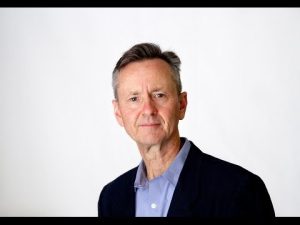 Stewart Carl, a co-founder of the citizens group Sky Posse, which advocates for reducing airplane noise in Palo Alto, strongly aligns with the residentialist viewpoint.
Stewart Carl, a co-founder of the citizens group Sky Posse, which advocates for reducing airplane noise in Palo Alto, strongly aligns with the residentialist viewpoint.
Carl believes that commercial development is threatening the quality of life of Palo Altans — or “Q of L,” as stated in his slogan. He hopes to halt office development in Palo Alto to fix the growing issues of traffic, parking, retail and housing that have caused increasing concern for many Palo Altans.
In response to a survey conducted by the residents group Palo Alto Neighborhoods, he wrote that his reason for running is due to “over development threatening our quality of life and our unique Palo Alto culture that has contributed so much to Silicon Valley’s culture of innovation.”
Carl goes farther than most of the other candidates in support of slow growth. He has stated that Palo Alto “needs an immediate moratorium on all new office construction until the city can determine how much growth Palo Alto’s infrastructure can support.”
Besides office space, traffic is a pressing concern for Carl. He believes that the city should “share jobs with neighboring cities” and that telecommuting could be very impactful on traffic as more telecommuters means less cars in traffic. Carl also thinks that the city should support alternative methods of transportation, such as biking, walking and taking shuttle buses.
*Although we contacted all candidates for interviews, we were unable to schedule them with Liz Kniss and Stewart Carl.

